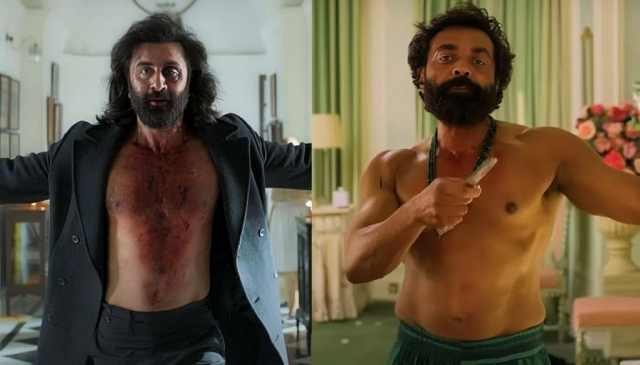'Animal' dialogue writer defends Bobby's Muslim villain, says Ranbir's Hindu hero is as big a demon
Discussion unfolded where film had to be defended

Screenwriter Gazal Dhaliwal, celebrated for her feminist narrative in Lipstick Under My Burkha, recently engaged in a spirited debate with Saurabh Gupta, the dialogue writer of the polarising film Animal. In a video shared by Brut India from FICCI Frames, the dialogue unfolded as they dove into the implications of specific scenes within the Sandeep Reddy Vanga directorial, which stars Ranbir Kapoor in the lead role.
Gazal highlighted concerns over the film's depiction of menstruation, saying, “Ranbir Kapoor, the hero, can behave like this, can say that, ‘You change four pads a month and do so much drama.’ If the hero can say stuff like that, the man who is watching can very well think it, even if he won’t go ahead and say it. He can say in his jobs, ‘She is doing so much drama, she wants a leave today because she is on her periods.'"
Saurabh countered Gazal's argument by advocating for cinema's ability to entertain rather than solely serve didactic purposes. “Using cinema to teach men the importance of sanitary napkins to tell them that smoking is bad, alcohol is bad… There’s so much pressure that cinema has buckled under it. Let’s have some fun," he countered.
The conversation veered towards the film's portrayal of religious identity, with Gazal raising concerns about potential Islamophobic undertones in the character arc of Bobby Deol's character, Abrar Haque. She questioned the narrative decision to associate negative traits with a Muslim character, suggesting a need for introspection among filmmakers regarding the stereotypes they perpetuate.
In response, Saurabh defended the creative choices behind the character development, asserting that the narrative progression logically warranted the depicted transformation. He underscored the complexity of character arcs and argued against attributing broader societal biases to individual cinematic portrayals. “For us, these things moved logically, from one to two. Now we are realising, ‘Okay so there is a view that…’ But the hero is also just as big of a demon as the villain. And he’s Hindu, but no one said, ‘You have portrayed a Hindu in such a way,'” said Saurabh.
Gazal responded by stating that it is one thing to say that “this is a story, the character did this” but one must stop and ponder that this character “was made by you.” She said that the writers decided that story for that character so “what is it about you that’s making that character do that?” She added, “You are saying that his brother went abroad and changed his religion. You have decided that the character is going to change their religion and become a Muslim– a very stereotypical Muslim who is going to have three wives, be aggressive, beat up the wives, pounce on her in front of 100 people.” Saurab simply countered by saying that this was a larger problem with the industry, which should also be addressed at a larger level.
The discourse extended to the film's treatment of female characters, with Gazal lamenting the fate of Rashmika's character and highlighting disparities in the characters' outcomes based on gender. "She left her family and said, ‘My husband is my mother, father everything.’ She has nothing. He still has his family, cousins, a flourishing business. So I don’t think the character had a very sad ending,” remarked Ghazal.
Saurabh countered Gazal's critique by emphasising the agency exhibited by the female characters within the storyline. "We didn’t make this films to establish that women are lesser. I, in fact, felt that the hero’s wife in the film, had a lot of rights. Ultimately, she leaves him and goes… He loses everything. This used to be enough, but it is no longer enough.”
In conclusion, Gazal commended the craftsmanship of Animal while cautioning against its potentially problematic messaging. Saurabh defended the film's artistic choices and urged viewers to appreciate it as a work of fiction rather than a reflection of societal norms. “There are many types of movies in Hollywood like Tony Montana, Scarface, The Godfather, which we praise a lot. Maybe we can let this film remain a film. You said ‘chill,’ which I think is a great word. Just chill,” he said.
Have something to add? Share it in the comments



















COMMENTS
Comments are moderated and generally will be posted if they are on-topic and not abusive.
For more information, please see our Comments FAQ